Blogs » Society » Interview with Shanghai punkers Round Eye
Blogs » Society » Interview with Shanghai punkers Round Eye |
- Interview with Shanghai punkers Round Eye
- Presented By:
- Oh no they didn't! Government blames firecrackers for pollution
- Running A China Tech Office. It’s Not About The Tech.
- Media bitches attack CCTV host and author Chai Jing
- Midweek Music Preview: Jan 30 - Feb 5, Jazz Legend Eddy Gomez, Maestro Maazel, and farewell to the Macaronians
- Seven cities in China listed among the ten most polluted cities in the world
- Protecting Your IP In The Chinese Market. A Webinar On Feburary 8.
- Averting China’s Local Government Defaults
- China Is Polluted. We Get It Already
- Jon Stewart And Neil deGrasse Tyson Talk About China’s Pollution, Space Laser
- These Are Not The Cars You Want To Rear-End At High Speed
- Cops Petition Against Charge Of Police Brutality, Get Beaten Up
- Celebrity Businessman Chen Guangbiao Sells Canned Air To Make A Point
- Guangzhou Sinkhole Devours Roadside Shops And Houses
- Here’s A Petition To The White House To Block China’s Great Firewall Architects And Scholars
- Acid Dumplings [47]
- The Competition For Best Gangnam Style Remake Is Over: This Flipbook Wins
- Service Companies In China. How To Get Paid.
- Survey of China’s 24 most corrupt officials in 2012
| Interview with Shanghai punkers Round Eye Posted: 29 Jan 2013 08:00 PM PST  With a band name that stands out as much as a foreigner does in Shanghai, rock outfit Round Eye is solidifying their status as musical auteurs to the city while drawing upon cross cultural influences. Lead singer Chachy, a 29 year old American, tells the tale of the ups and downs of making music in Shanghai. [ more › ] With a band name that stands out as much as a foreigner does in Shanghai, rock outfit Round Eye is solidifying their status as musical auteurs to the city while drawing upon cross cultural influences. Lead singer Chachy, a 29 year old American, tells the tale of the ups and downs of making music in Shanghai. [ more › ]     |
| Posted: 29 Jan 2013 08:00 PM PST |
| Oh no they didn't! Government blames firecrackers for pollution Posted: 29 Jan 2013 07:00 PM PST  In the lamest attempt to shift the focus away from the massive amount of pollution from state industry, the CCP has encouraged the Chinese people to avoid letting off firecrackers over Spring Festival. [ more › ] In the lamest attempt to shift the focus away from the massive amount of pollution from state industry, the CCP has encouraged the Chinese people to avoid letting off firecrackers over Spring Festival. [ more › ]     |
| Running A China Tech Office. It’s Not About The Tech. Posted: 30 Jan 2013 03:28 AM PST Just finished the book, The Disconnect Patterns: Notes for Managing a U.S.-China High Technology Company, by Raj Karemchedu. Karemchedu spent many years managing the China office of a US high tech company and this book sets what others in similar positions need to know. Though the book is aimed at technology companies, the advice it contains applies with equal force to any company with a China office. The book sets up a fictional company with a US home office and a China branch (that term being used loosely, not in its legal sense). It then discusses the handling of problems/situations from the perspective of both the US and the China team. By doing so, the reader gains a good understanding of the thinking of both and for why there is such a "disconnect." Karemchedu goes beyond just explaining why problems arise; he also does a very good job providing tips on how to resolve them. Karemchedu discusses many of the issues/disconnects about which my clients are constantly complaining, including Chinese employees who all but refuse to take initiative or to go against what everyone else in the market is doing. On the flip side, the Chinese employees are constantly frustrated by the American employees (and head office) not sufficiently valuing their views on how to operate in/market to China. Interestingly, this is also a complaint I often hear from Americans who run China offices. The book examines twenty disconnects, many of which will no doubt cause you to nod your head in assent:
This is a very practical book and Karemchedu clearly knows whereof he speaks. I highly recommend it to anyone trying to manage a China office, be it in technology or otherwise. I do however have a bone to pick with this book and with so many of the China books I have been sent over the years. It read like it was never edited by a really good editor. It was not badly written, but it also was not nearly as well written as it could have been, and a really good editor would have made the book a smoother and more enjoyable read. |
| Media bitches attack CCTV host and author Chai Jing Posted: 29 Jan 2013 06:00 PM PST |
| Posted: 29 Jan 2013 05:00 PM PST  Midweek Music Preview is a rundown of all the events happening on stages across Shanghai. On the docket this week: Master concuctor Lorin Maazel, Master jazz bassist Eddy Gomez, and a death in the family of Shanghai's local bands. No, not a death, but a farewell gig for the Macaronians. On top of that, we have a heavy night at YYT with two female-led metalcore bands on Friday night, the release party of Baltic States' new LP, and bombastic drum action by Funky Sueyoshi. And if that's still not enough, head over to our calendar for more. [ more › ] Midweek Music Preview is a rundown of all the events happening on stages across Shanghai. On the docket this week: Master concuctor Lorin Maazel, Master jazz bassist Eddy Gomez, and a death in the family of Shanghai's local bands. No, not a death, but a farewell gig for the Macaronians. On top of that, we have a heavy night at YYT with two female-led metalcore bands on Friday night, the release party of Baltic States' new LP, and bombastic drum action by Funky Sueyoshi. And if that's still not enough, head over to our calendar for more. [ more › ]     |
| Seven cities in China listed among the ten most polluted cities in the world Posted: 29 Jan 2013 10:45 AM PST Jacky Huang | January 29th, 2013 From: Southern metropolis daily
In the largest 500 cities in China, only less than 1% has met the recommended standard set up by World Health Organization (WHO). The most prominent air pollutant in China is PM10. The economic cost of pollution in China every year is equal to 1.2% of GDP if calculated based on the related disease and is 3.8% of GDP if calculated based on willingness to pay. The report – Towards environmental sustainable future – National environmental analysis of the People's Republic of China announced the statistics yesterday. This report was accomplished by team consisted of experts in environmental fields from all over the world and professional team from Asian Development Bank. The report also pointed out in the air pollution chapter that the increasing demand of fuel, number of automotive vehicles, and industrial expansion has deteriorated the quality of air and negatively affected body health and eco system. The key example in the report is that only 1% of China's 500 largest cities meet the recommended standard set up by WHO. Among the ten most polluted cities in the world, seven are in China. Besides, there are several districts in China, because of mixed effects of pollutant from cities and industrial zones, become severely polluted zones. Combined with the frequency of smog, haze and acid rain, the environmental qualities in these zones have decreased dramatically. The most obvious air pollutant in China is suspended particle, the report said. Over one third of the monitored suspended particles in cities have density more than that in the Ⅱ level pollution, much more than the degree of sulfur dioxide and nitrogen dioxide pollution. Most areas in China have high density of PM2.5, which becomes a very severe environmental problem. The report also pointed out that China also faces the challenges of indoor air quality, which is not under consistent or systematic monitor. A research done by China Consumer Association earlier showed that the methanol density has exceeded the standard by 73%, according to an indoor air sample from Beijing. The air sample in Hangzhou showed the methanol density is over 79% of standard, and the benzene density is 11 times that of the standard. The research also showed that 94% of the new cars which accept the monitor of air pollution have not meet the standard, and 90% of the new furnished houses have more methanol than that in the standard. The epidemiology proved that air pollution can lead to mal-function of lung, the increase of morbidity and mortality of respiratory system disease, chronic bronchitis, cardiovascular and cerebrovascular diseases. It can also lead to increase of patients, absence from duty and premature death. The Asian Development Bank Chief Expert in water resource Zhang Qingfeng said in the report conference that China should put more emphasis on the system of energy conservation and emission reduction, including the market-oriented policies and measures. The report suggests Chinese government to reform in the pricing system of resources, and to introduce the green tax system. This reform put forwarded by the Asian Development Bank advises to levy on the emission of carbon dioxide and pollutant except related to resources exploitation. It also asks for the tax exemption of investment on equipment related to pollution control. "The financial and fiscal policy freeform should be carried out with the economic incentives" said Zhang Qingfeng. This will transfer the environmental tax revenue from central government to provincial and local governments, encouraging them to invest on environment protection and resource conservation.
The dust on Jan 10th, Beijing CCTV Tower
Jan 13th, Beijing has been reported of sixth level of pollution in the three consecutive days
Jan 12th, tourists were walking in the Temple of Haven. Beijing's Government several departments have announced through internet, micro blog, TV and radio, suggesting residents to stay indoors and students to minimize outdoor activities.
Jan 12th, Wuhan
Jan 12th, residents were riding in a bridge in Nanchang
Jan 12th, Zhengzhou, Henan Province An armed police guard was on duty in a heavy fog.
Photo above: Zhengzhou, Oct 10th, 2012 Photo below: Zhengzhou, Jan 8th, 2013 Other Source: SDnews: |
| Protecting Your IP In The Chinese Market. A Webinar On Feburary 8. Posted: 29 Jan 2013 08:28 PM PST On February 8, 2013, I will be putting on a China IP webinar through ALI-CLE. It will start at noon Eastern Time and my speech will end at about 1:15 and then there will be 30 minutes or so for questions. The cost is a somewhat reasonable $179 and ALI-CLE describes it as follows:
For more information, click here. Hope to "see" you there.
|
| Averting China’s Local Government Defaults Posted: 29 Jan 2013 01:14 PM PST The Financial Times' estimate that China's banks rolled over three quarters of the 4 trillion yuan ($642 billion) of local government debt that fell due at the end of 2012 to avert defaults puts a hard number on a soft … Continue reading → |
| China Is Polluted. We Get It Already Posted: 29 Jan 2013 10:25 AM PST No one loves a polluted Beijing quite like foreign editors. The first time the smog swept through, two and a half weeks ago, lots of overseas publications were caught off guard and slept on the story, which is why we saw articles about China's "Airpocalypse" up to five days after the skies had cleared up. Determined to never miss an easy story again, however, foreign editors are all over this week's pollution like roaches on guano. Here's a very compendious list of non-wire stories about Beijing's air — weather stories, basically: "Beijing choking on hazardous smog – again." (This Just In blog, CNN) "An economic death sentence." (Fortune) Pollution. (WSJ) Pollution! (NBC News) POLLUTION! (BBC) More CNN! (CNN) "Smog city." (Daily Mirror) Once again, with feeling: "Once again, air pollution in Beijing is literally off the charts." (Newser) Just a gallery. Words are for the birds. (Getty via Global News) Beijing recommends the young and old stay indoors. Breaking? (Bloomberg News) Here's a video. Warning: it autoplays. Maybe you shouldn't click. (The Age) And finally, this headline: "Salt Lake City Smog Approaches Beijing Levels." C'mon! (American Geophysical Union) Again, these are only the non-wire stories, and AP, Reuters, AFP all have write-ups that have been picked up by ABC, CBS, Fox, NBC, Guardian, Telegraph, etc. Huffington Post will surely provide their "take" three days later. We do appreciate that some stories have attempted to push the conversation. For example: "China's Pollution: The Birth Defect Angle." (James Fallows, The Atlantic) Profit from pollution! (The Daily Reckoning) The possibility of a clear air act for China. (Green blog, NY Times) More pieces like these can go a long way toward advancing the conversation. China — and Beijing specifically — is polluted for a number of reasons, including population (especially this reason; want to guess China's emissions per capita?), economic growth, lack of arable land, geography, etc. Surely you popular media folk can help steer the discussion beyond API readings? And yet, your contribution to public discourse is shock-and-awe pieces, one-liners ("pollution that can be seen from space!"), furrowed eyebrows on television reporters who wipe soot off car windows… The Daily Show's around for that. At the very least, you can stop acting like this is the first time smog has settled over a Chinese city, or will be the last. |
| Jon Stewart And Neil deGrasse Tyson Talk About China’s Pollution, Space Laser Posted: 29 Jan 2013 08:33 AM PST Jon Stewart gave China's air the comedic treatment last week (and rhymed it with "Nair"), using footage from a week before (and referencing this story about the Hangzhou factory fire). We bring it up now because, first, we hadn't seen it on the China blogs yet, but more importantly, everyone is talking about pollution again. And if you must join in on this one-way conversation – pollution sure is unwelcome, eh guys? yeah, totally — you might as well make an Auric Goldfinger reference, as The Daily Show does. The segment is called "Things May Be Bad, But At Least We Can't Chew Our Air." It's not Stewart's best effort, and Neil deGrasse Tyson's appearance is totally wasted, but the audience seemed to dig it. |
| These Are Not The Cars You Want To Rear-End At High Speed Posted: 29 Jan 2013 06:00 AM PST How impressive is this? How fast must you go to actually push your vehicle underneath the back wheel of another? (We've seen something similar, for the record.) At the intersection of Huayuan Road and North Ring Road in Zhengzhou, Henan province on Friday, a five-car accident was caused by a driver who rammed his car into the back of a police vehicle. A second cop car was involved in the fender-bender. This bears repeating: if you're going to get in a car accident, don't crash into cops. They usually don't "let people off" for these kind of things. Eyewitnesses say the accident was caused by a driver "not braking fast enough." Um. Correct. (Sina) |
| Cops Petition Against Charge Of Police Brutality, Get Beaten Up Posted: 29 Jan 2013 02:23 AM PST The above video, posted two days ago, depicts about 20 staffers of Liaoning province's Anshan District People's Procuratorate beating five petitioners on September 29, 2010. It's no secret that police officers often beat and humiliate petitioners to deter people from further petitioning. But this time, those on the receiving end of the abuse were themselves cops. According to local news, the Procuratorate accused five officers of using torture during interrogations. The officers denied the charge, petitioned in front of the Procuratorate building, and were promptly beaten. It's predictable how the Anshan District Security Bureau handled this case – no investigation, no punishment, nothing. They simply asked those involved to remain silent. So what we have here are police, accused of brutality, being brutalized by what might be other police. The irony would be funny if it weren't so sad. |
| Celebrity Businessman Chen Guangbiao Sells Canned Air To Make A Point Posted: 29 Jan 2013 01:24 AM PST If you live in northern China, particularly Beijing, you don't need me to tell you the air's not looking good today. By all indications, government officials understand this as well — their offices have windows, too. They live under the same miasma, as do their children. And we have to trust that they share our desire to clean up the environment, because, again, unless someone's building a dome over Zhongnanhai, they're in the same gray soup as the rest of us. Just in case, however – in case — the government has not noticed, this latest stunt by business celebrity Chen Guangbiao should make them take note. Chen, who we last encountered in October taking advantage of the Diaoyu debacle with a ridiculous PR stunt, is now selling cans of air. For five yuan each, apparently. John Garnaut of Fairfax Media, writing in the Sydney Morning Herald, has the story:
It might be tempting to call him full of hot air, but if there's one thing Chen's good at, it's turning attention to a cause.
The right cause? In this case, probably.
Then again, if his satirical venture ends up turning a profit, it'll surely lead to copycat companies selling canned air for four yuan, or less, and offshoot suppliers that manufacture inferior air called "gutter air," leading to new rounds of health issues, scandals, embezzlement, and questions about government failings. Life imitates satire. All of us are screwed. Canned air for sale in China, as blanket of smog returns (SMH) POSTSCRIPT: What it looks like today: (Image Xinhua) |
| Guangzhou Sinkhole Devours Roadside Shops And Houses Posted: 28 Jan 2013 11:02 PM PST We've seen streets swallow people and vehicles alike, and form a giant ass pattern, but a house? Check. In Guangzhou yesterday near Kangwang Road bus station in Liwan district, the ground underneath a construction site collapsed, pulling six shops into its Stygian depths. The first sinkhole appeared around 4 pm, and there was another one six hours later. There were no reported casualties, just one heck of a mess. |
| Here’s A Petition To The White House To Block China’s Great Firewall Architects And Scholars Posted: 28 Jan 2013 08:12 PM PST Nearly everyone hates the Great Firewall (GFW), which blocks websites such as Facebook, YouTube, Twitter and many others from being viewed inside mainland China. To "jump over" said firewall, a small cottage industry of VPN services have sprung up, such as Witopia, Astrill and 12vpn, to name a few, to help the frustrated Internet user get their "real" Internet fix. While most users of VPN technology are believed to be expats, many from China's growing middle class are also using the technology. Maybe because of this, in the last year, those involved with the GFW have made a concerted effort to block access to VPNs. While the cat-and-mouse game of online censorship has been ongoing for years, some Internet users have decided to take the issue to a whole new level to show their frustration. On January 25, someone posted a petition to the official White House website asking the US to deny those involved in the GFW from entering the country:
It then goes on to provide a link to a list of "scholars who are working on the GFW in China." At the time of this writing, 8,292 people have signed, with a target of 100,000 by February 24. Some will say that this will have no effect on the GFW's ability to block websites in the future, but for anyone who has lived in China and ripped out hairs, thrown smartphones and laptops across the room and shouted "FUCK YOU GFW!" then this is just one way to get at those smug scholars who dedicate their careers to the restriction of the free flow of speech and information. Parvez tweets @neo2049 |
| Posted: 28 Jan 2013 07:10 PM PST |
| The Competition For Best Gangnam Style Remake Is Over: This Flipbook Wins Posted: 28 Jan 2013 11:39 AM PST We have here a very late entry to the Internet's ongoing competition for best Gangnam Style remake/parody, but sometimes the best really do come last. Please give your attention to Etoilec1, whose flipbook animation of Gangnam Style captures and embodies PSY's original production in all its creativity, craftsmanship, zaniness, and sheer wonder. Is it scene-by-scene perfect? No. For example, it's missing background on all the panels. But it's a flipbook animation of the whole damn song! Have I already mentioned that? Our joy at discovering this (we have Alicia to thank) is only dampened by our disgust at YouTube for stripping the audio from Etoilec1′s original upload for copyright reasons (it was posted January 20). But you can watch it above on Etoilec1′s Facebook page, where it's received more than 41,000 of both likes and shares, numbers that are fast increasing as we speak. Step aside, Chinese leaders, Zhangjiajie, bikinied women, Novak Djokovic, and Ai Weiwei. You've all been one-upped. |
| Service Companies In China. How To Get Paid. Posted: 29 Jan 2013 08:20 AM PST By: Steve Dickinson More and more foreign service companies are providing services to Chinese clients. This is a good thing, because the Chinese companies need the help. We have noticed, however, that foreign service providers continue to neglect to seriously consider the most important issue: how to get paid. When operating in the U.S. and European markets, service business billing and payment are quite simple. Usually there is no contract, just an oral agreement or exchange of email. When payment is due, invoices are informal or not even provided. Tax issues are irrelevant, since the work is performed at the office of the service provider and all tax is paid to the local government. This approach does not work for China. To get paid from China, there are two critical points you must consider: documentation and tax. – Documentation When the Chinese client pays your bill, it is not a simple matter. The Chinese client must go to its foreign exchange bank. At the bank, RMB must be converted to U.S. dollars or some other convertible currency. This conversion is subject to strict rules issued by the State Administration of Foreign Exchange (SAFE). The foreign exchange bank acts as the agent for SAFE in enforcing the rules. These rules were originally designed to protect China's foreign exchange reserves but now they are used to prevent capital from illegally leaving China. Payment of falsified invoices is one of the primary ways that capital illicitly leaves China, so careful review of all transactions is therefore required to prevent fraud. To comply with these rules, your Chinese client is not permitted to simply make a wire transfer request. The Chinese side of the transaction is required to provide documentation that proves there is a legitimate underlying transaction for which payment is being made. The basic documentation is as follows:
These first two requirements are mandatory and will always be required. Depending on the specific situation, the foreign exchange bank may also impose the following additional requirements:
Banks can impose other requirements, depending on their mood and their concern about the legitimacy of the transaction. The bank is totally in control of the situation and you have no real standing to discuss the matter. No payment can be made until the bank is satisfied and the bank has no incentive to approve the transaction. Delay in processing payment for services is therefore the norm rather than the exception. – Taxation It comes as a shock to many foreign service providers that the amount paid to them is subject to Chinese tax, even if all the service work was done outside of China. The Chinese tax authorities deem all service work provided to Chinese clients as Chinese source income. The local tax authorities therefore will impose a tax on the invoice amount. As with the SAFE rules, the foreign exchange bank serves as an agent for the local tax office to ensure that the correct amount of tax is imposed and paid. No wire transfer can be made until this happens. Unfortunately, there is no agreement in China on the correct amount of tax to impose. We have seen tax amounts imposed ranging from 10% all the way to 40% of the invoice amount. Even the same tax office will take an inconsistent position on the amount of tax to impose. One payment will be taxed at 10% and the next payment for exactly the same services will be taxed at a substantially higher rate. The resolution of the tax issue is critical because the invoice cannot be paid until the tax amount is calculated and paid. The Chinese client acts as the agent for the foreign service provider and pays the required amount on behalf of the foreign party. Since the total amount paid by the Chinese client does not change, the Chinese client has virtually no incentive to work with the tax office to lower the tax amount. Since the foreign service provider is anxious to get paid as soon as possible, the incentive for the Chinese client is to agree with whatever the tax office decides and to make the tax payment as soon as possible without complaint about the amount imposed. The amount of tax can be high and the time required for processing can be very long. It is therefore important that the foreign party understands the issues and enters into an agreement with the Chinese party on how to proceed. Under international commercial practice, it is most common to simply provide in the service contract that 1) the Chinese side is liable for all taxes imposed by the Chinese government and 2) the amounts payable by the Chinese side are net of taxes. That is, the amount invoiced by the foreign party must be paid in full without regard to any taxes imposed in China. This provides certainty to the foreign party and places the burden of dealing with the complex, uncertain and constantly changing Chinese tax system where it belongs: on the Chinese party. Since the Chinese party is responsible, the Chinese party will then have the appropriate incentive to advocate for the lowest tax possible. Certainly the Chinese party is better positioned to do this than the foreign party. It is common for the Chinese party to strongly resist this standard approach and to seek to place all of the risk of the Chinese tax system on the foreign party. The foreign party must consider whether to abandon the transaction or move forward without any certainty on the amount of payment that will be made. If the foreign party will move forward, there are various complex ways to mitigate the risk of tax payment. These measures must be negotiated carefully in advance. As you can see, the risk for payment in service transactions in China is considerable. There is risk of substantial delay and there is even the risk that no payment will ever be approved by the Chinese bank. It is therefore very important to confirm the ability of the Chinese side to make payment very early. This means that you should not do a substantial amount of work before you receive your first payment. Usually we provide in the contracts we draft that the Chinese side will make an initial payment before any substantial work is done. We do this in order to determine how quickly the payment will be processed and the tax that will be imposed on payment. Often, the Chinese side itself has no idea what will be the result. You must therefore protect yourself by getting paid at least once before you take the risk of doing a substantial amount of work for a Chinese client. I have seen service companies go out of business by failing to heed this advice. We also often get called by service companies upon learning that their payment is going to be delayed and taxed heavily. By that point, there is little we can do. Please do not be another name entered onto the casualty list. |
| Survey of China’s 24 most corrupt officials in 2012 Posted: 29 Jan 2013 12:59 PM PST by Barry van Wyk on January 29, 2013  2012 was the annus horribilis of the "trial by Weibo" of government officials, their public humiliation and ultimate sacking in disgrace. More than ever before, last year witnessed multiple cases where government officials were implicated in sex videos and other corruption scandals that first appeared in full public view on the Chinese Internet and led ultimately to their dismissal. If it wasn't already before, the public image of government officials of various ranks in China was in crisis in 2012. In light of this situation, the Crisis Management Research Center at Renmin University (中国人民大学危机管理研究中心) in Beijing earlier in January this year published a report entitled "The Public Image Crisis of Government Officials" (官员形象危机2012报告). As the Yanzhao Evening News (燕赵晚报) from Hebei province today explains in a front page story, the Crisis Management Research Center surveyed 24 cases of corruption that became public knowledge on the Chinese Internet in 2012 so as to divine some trends and patterns in corrupt behavior among government officials in China. Their findings included that 95% of corrupt government officials keep mistresses, and more than 60% of these corrupt officials are openly cohabiting with their mistresses. Yet this is merely the beginning. Read on for what misdeeds the men behind the faces below got up to in 2012, before paying the price brought on by full public knowledge. Ah, the Internet… Some of China's most corrupt (and most publicly known) former government officials in 2012 Among other findings, the Crisis Management Research Center report highlighted the following personal characteristics of the officials involved as well as aspects of the investigations that were carried out:
Links and sources |
| You are subscribed to email updates from Update » Blogs » Society To stop receiving these emails, you may unsubscribe now. | Email delivery powered by Google |
| Google Inc., 20 West Kinzie, Chicago IL USA 60610 | |

 Journalist and CCTV host
Journalist and CCTV host 







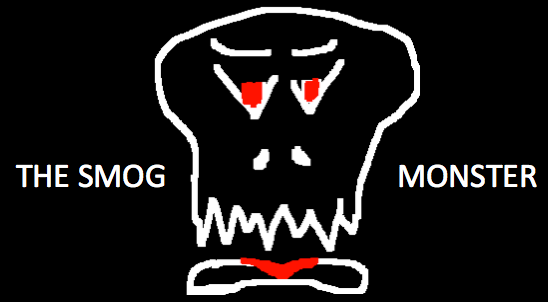
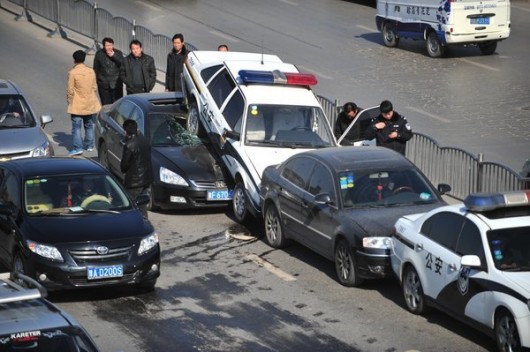
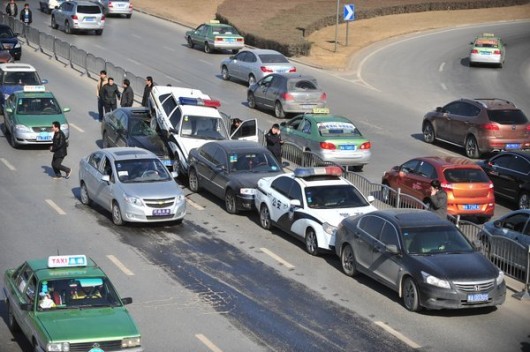
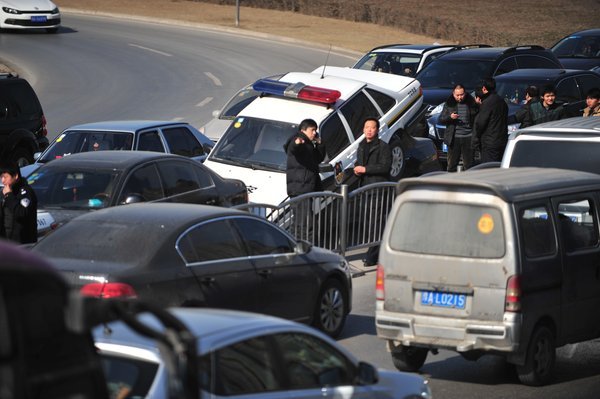
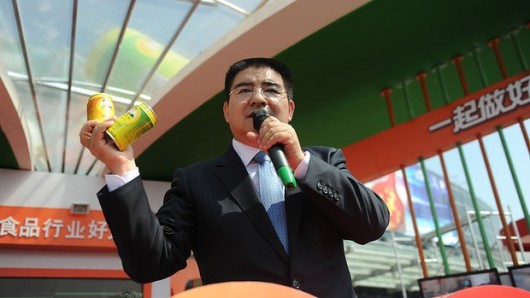
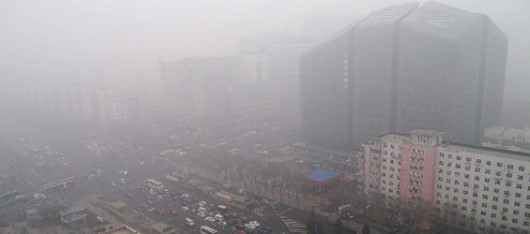

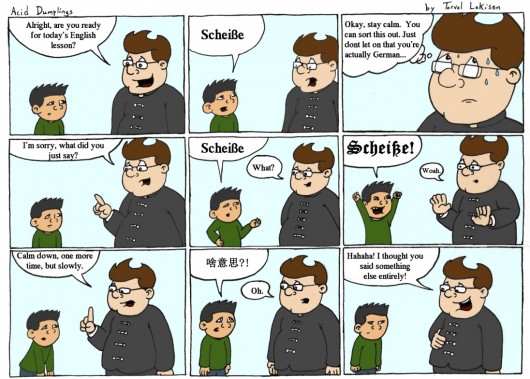












Comments